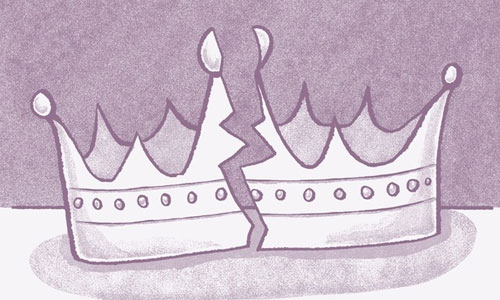the French Revolution was a great historical event which not only paved the ground for political development in France but also in Europe and in the world. Lasting from 1789 to 1799, it completely changed the social and political structure in France. The absolute monarchy that had unlimited rights but no accountability was abolished and democracy was eventually developed with civil rights such as freedom of speech, worship, association, press and ownership of land. It also put an end to feudalism, and took political power from the Catholic Church. There were various reasons which brought about the revolution. These include intellectual reasons like the ideas put forward by the philosophers of the age of enlightenment; cultural reasons like the rise of the bourgeoisie class; political reasons like the ineffective leadership of French monarch Louis 16; social reasons like the unjust states system; financial reasons like French involvement in expensive wars; and economic reasons like the rise in price of bread.
As pointed out, there were many factors behind the French revolution but the first and most important was inequality and social discrimination. In the 1780s, the population of France was around 24 million and 700 thousand and it was divided into three estates. The First Estate was the Roman Catholic clergy, which numbered about 100,000. The Second Estate consisted of the French nobility, which numbered about 400,000. Everyone else in France; including merchants, lawyers, laborers and peasants; belonged to the Third Estate, which comprised around 98% of the French population. The Third Estate was excluded from positions of honor and political power; and was looked down upon by the other estates. It was thus angered and resented its position in French society. This led to them coming together to launch the French Revolution in 1789.
The Age of Enlightenment is considered another factor behind the French revolution. It was an intellectual and philosophical movement that dominated the world of ideas in Europe during the 18th century. Enlightenment philosophers like John Locke, Jean-Jacques Rousseau and Baron de Montesquieu questioned the traditional absolute authority of the monarch and divisions of society like the Estates System. For example, Locke argued that a leader may only govern a society if he had the consent of those he governed; Rousseau was against all class divisions; and Montesquieu advocated for a system of government based on separation of powers. The writings of Enlightenment thinkers were discussed in France more than anywhere else and they greatly influenced the revolutionaries.
The next important factor behind the French revolution was the ineffective or idealistic leadership of French monarch Louis 16. His government participated in a series of expensive wars primarily against its long-term rival Great Britain. Louis 16, who ruled over France from 1715 to 1774, lost the Seven Years’ War against Britain. He then drew up a plan to retaliate the loss by building a larger navy and an anti-British coalition of allies. However, this only resulted in a mountain of debt. The grandson of Louis 16, who succeeded him in 1774, then involved France in the American War of Independence against Britain. Though U.S. won the war, France gained little from it. French support for the war was expensive costing 1.066 million French livres, a huge sum at the time. This worsened the economic crisis in the nation and pushed it toward bankruptcy.
In addition, the extravagant monarch expenditure on luxuries, rise of bread prices which farther pressurized the already poor class of society and more importantly resistance against people’s demand to include the nobles as taxpayers of the other factors which compounded the economic crisis and compelled people to stand against irresponsible monarchical system. As most autocratic system in third world countries, the monarchical system in France was ruled on the basis of the divine right of kings. He was thus not answerable to his deeds and inabilities. However, the philosophies of Enlightenment thinkers made the public think differently. Louis 16 failed to overcome the financial problems facing France. He was not able to harmonize the conflicting parties at court to arrive at coherent economic policies. Louis 16 then tried to bring about radical reforms but failed miserably. The poor economic condition of the nation angered the masses and they became critical of their king. Moreover, both Louis 16 and his grandson were aware of anti-monarchist forces that were threatening their family’s rule but they were unable to stop them.
Given the similarities between French society before 1799 and today’s third world countries, what lessons can we learn this great historical event? The biggest lesson it gave was that everyone deserves to be treated equally in the society and there should be no discrimination based on caste, class and gender. No political peace is stable without social peace and social justice and so we should not neglect other groups or else the word liberty, equality and brotherhood would be senseless. The French revolution also makes clear that extreme idealism will lead society into chaos. It is true that once we were so and so but now political decisions must be taken on the basis of realities and level of current power. Another lesson that we must learn was negligence of enlightenment movements and public worldviews. Today, in Afghanistan, all people including Pashtun, Tajik, Hazaras, Uzbek and so on fight against extremists and Taliban showing the people of Afghanistan do not want go back to the past and no power would succeed to impose its will on Afghan people. The last lesson that is learned from French revolution is not to resist against public demand. Today, all Afghan people are tired war and impatiently expect to put an end to war in the county. Therefore, no group or no power can stand against public demand.
Home » Opinion » The French Revolution and Its Important Lessons for Today’s Political Life
The French Revolution and Its Important Lessons for Today’s Political Life
| By: Mohammad Zahir Akbari

